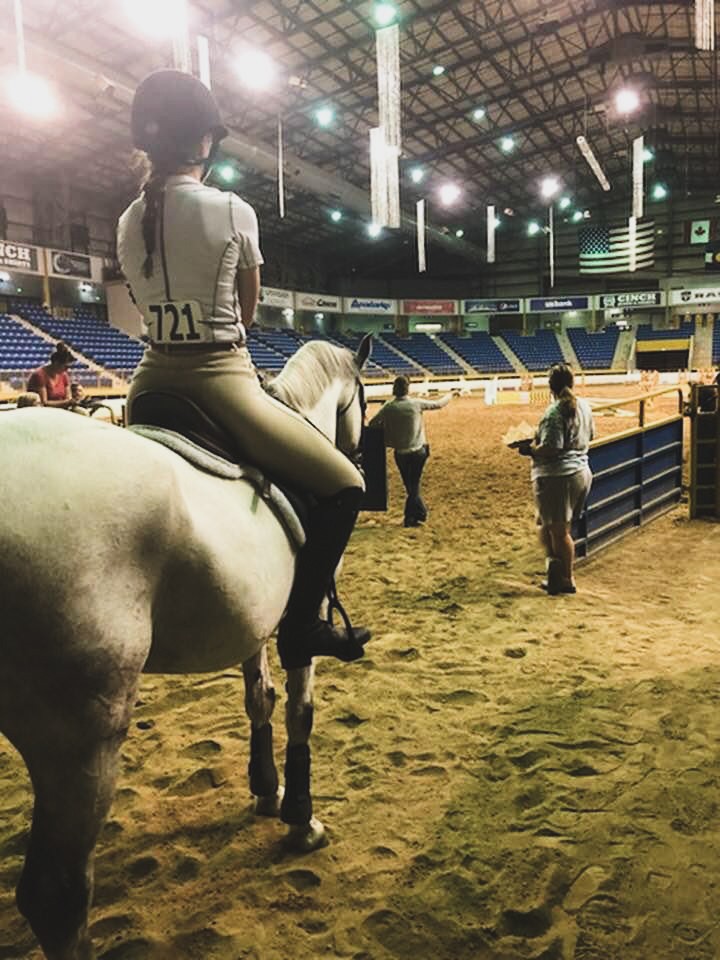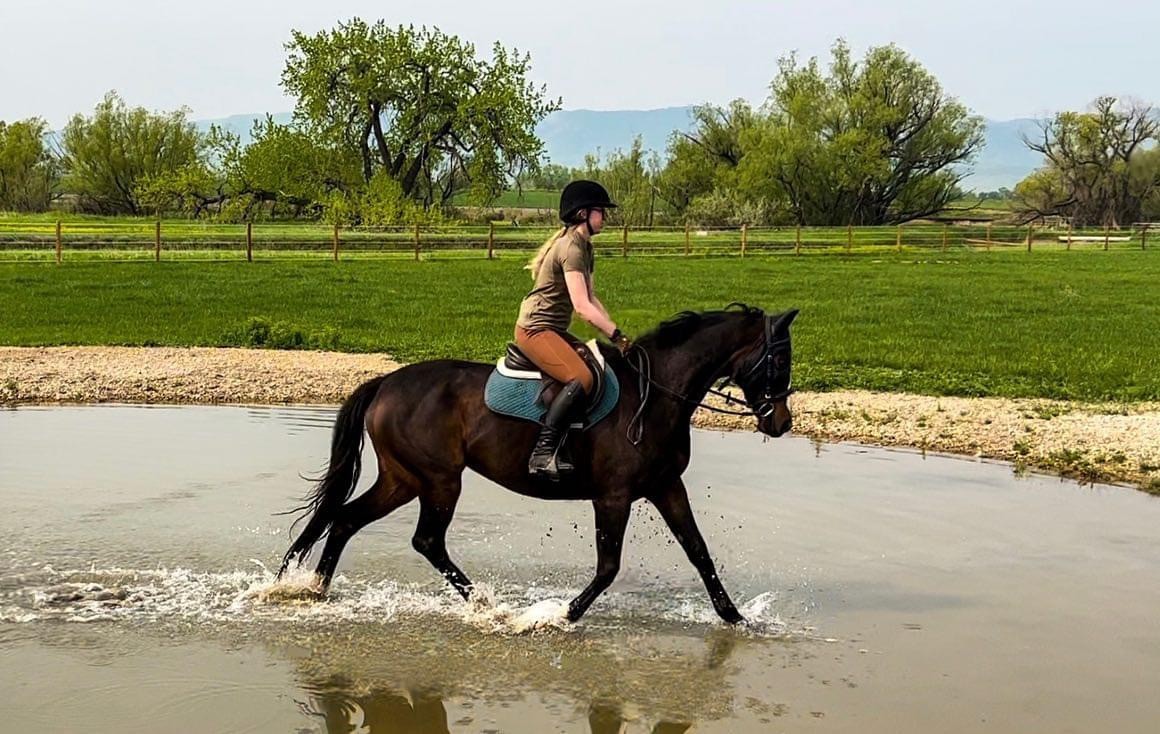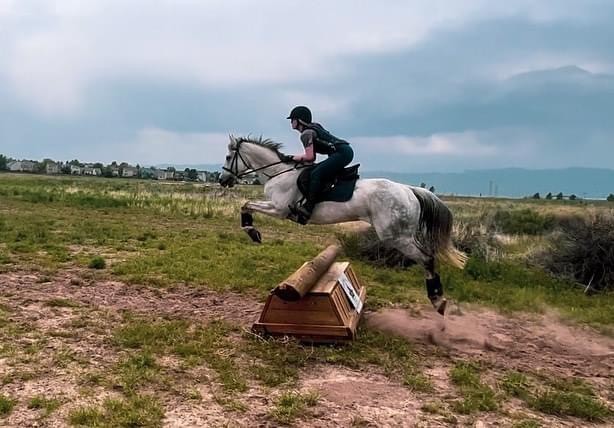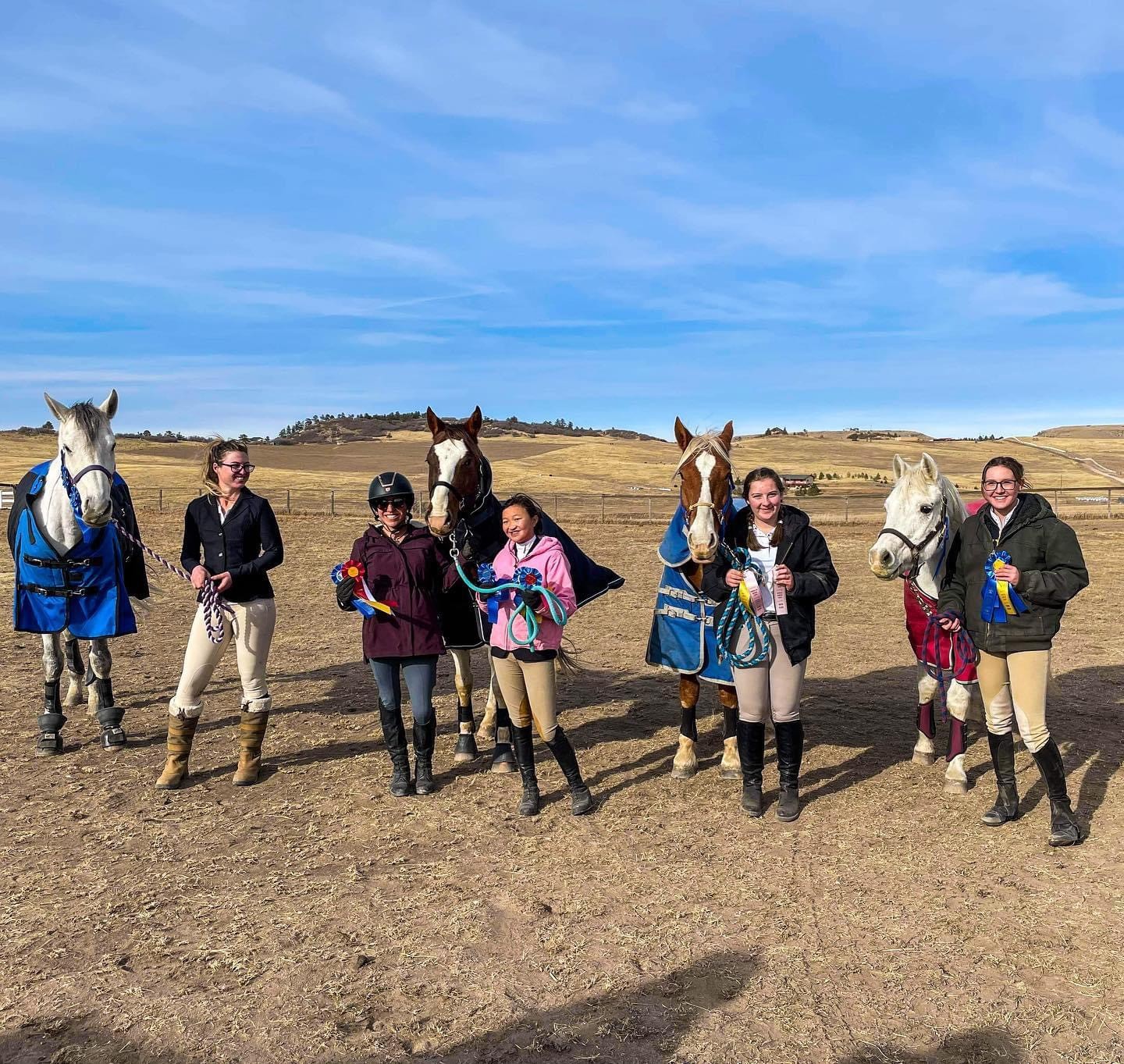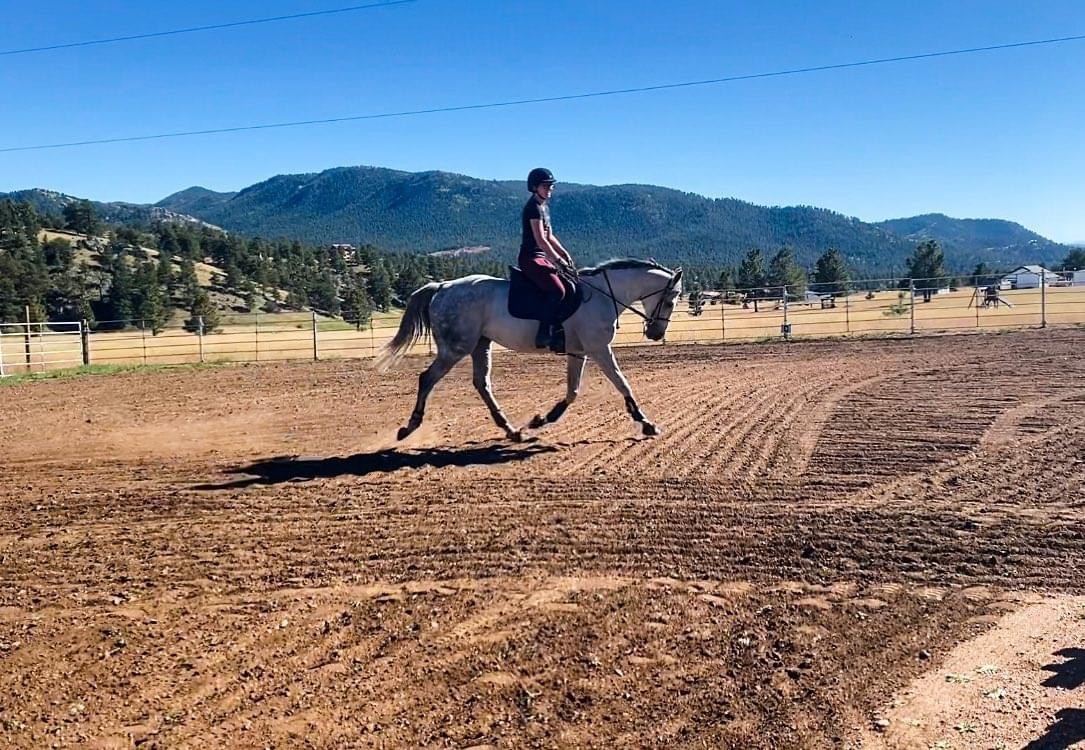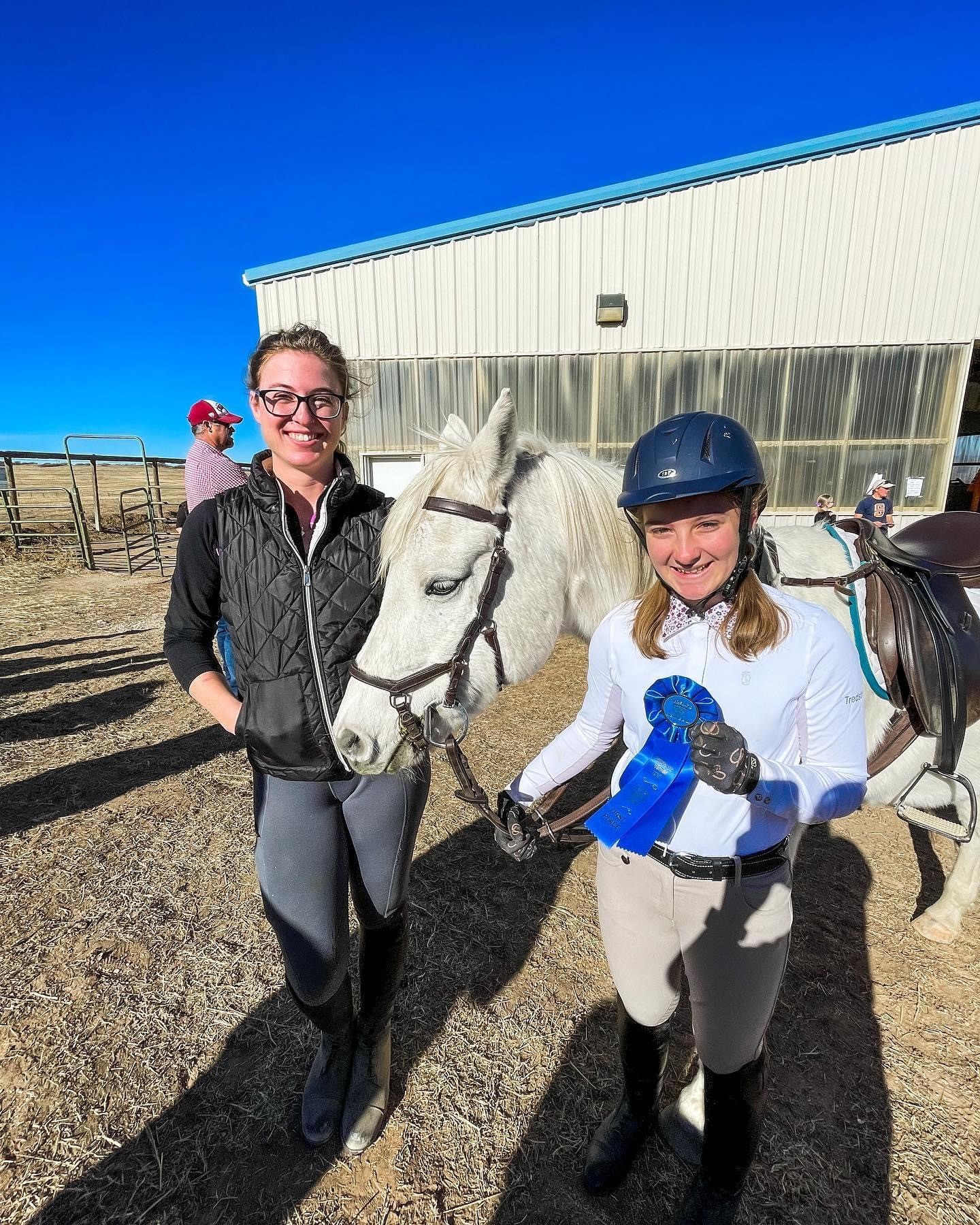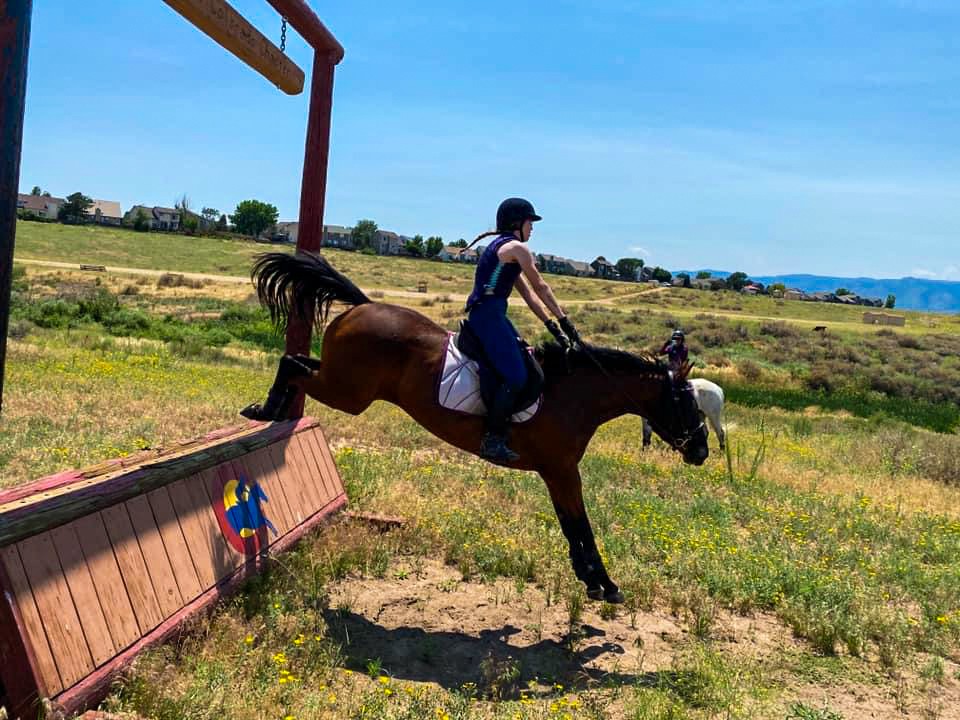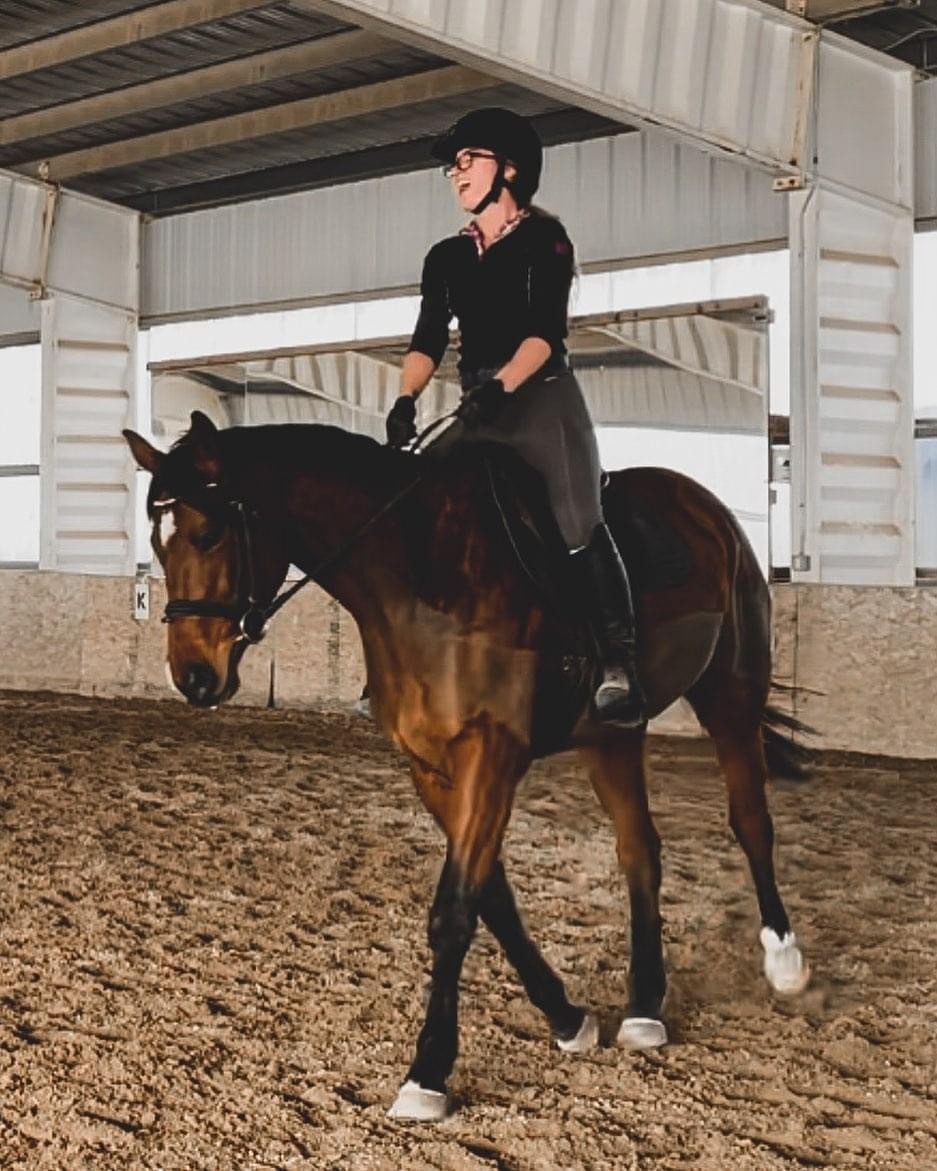We caught up with the brilliant and insightful Nicole Dayberry a few weeks ago and have shared our conversation below.
Hi Nicole, thanks for sharing your insights with our community today. Part of your success, no doubt, is due to your work ethic and so we’d love if you could open up about where you got your work ethic from?
I get my work ethic from necessity to be quite honest. Working with horses is not easy, as anyone who has done so can tell you. And working to stay competitive in an industry with so much wealth and elitism is no easy feat either. Growing up with horses and with the drive and ambition that I have taught me very quickly that I would have to work harder than many people around me in order to succeed. I remember being in grade school when one of my coaches approached me to start a discussion about managing my money and learning how to budget, save, and invest because it was something I’d have to learn very quickly in order to afford the training and the experiences that I wished to be a part of. I couldn’t afford to attend many of the shows and clinics that I wanted to ride in but I could always work or volunteer in them (which I often did) for a chance to gain some of the knowledge and experience that I so strongly craved.
Horses themselves imparted that same lesson on me in other ways as I started my business. While horses can be quite in tune with human emotions, at the end of the day they don’t care if you’re sick, injured, sad, or frustrated because you still have to show up for them with the same patience and the drive that you have on your best of days. My students deserve the same. I have to show up as a supportive coach and teacher every day of the week and I can’t afford to cut corners or quit early because the people and the animals that I work with don’t deserve that. Ultimately a strong work ethic just isn’t an option in this industry.
Great, so let’s take a few minutes and cover your story. What should folks know about you and what you do?
I have always been a “crazy horse girl.” The bug bit me at a very young age and as most horse people will tell you, it’s something of an addiction. Growing up I wanted to spend all of my time at the barn and in order to do so, it meant working in the barn a lot. Horses taught me so many life lessons growing up. They taught me how to work hard, how to be resilient, to be patient, and to truly trust the process. They taught me emotional regulation and how to be confident. Most importantly, horses taught me that I couldn’t succeed if I was too busy doubting myself.
All of these lessons were huge factors in starting my business. Yes I love riding and am fascinated by different training theories and techniques, but more than that I wanted to be able to share all the lessons that horses taught me about life. So many of the struggles people have in their riding and their entire journey with horses is mental. I love being able to help a student succeed in their riding by breaking through a mental barrier because I know that’s something that doesn’t leave them when they leave their riding lesson. They carry that with them in different capacities through the rest of their life too.
Looking back, what do you think were the three qualities, skills, or areas of knowledge that were most impactful in your journey? What advice do you have for folks who are early in their journey in terms of how they can best develop or improve on these?
1. Have mentors and make friends! There are so many right AND wrong ways to do things when it comes to working with animals. Learn as much as you can from as many people as you can. The more you’re exposed to the more you can try. Having mentors, trainers, and friends to bounce things off of and seek advice from is imperative when you’re working with something so susceptible to change. What worked yesterday might not work today and vice verse. Humans can come in stiff, tired, confused, or frustrated and so can our counterparts. It’s hardly ever black and white. 2. On that note, take things in stride. Since things are rarely ever black and white in can sometimes be challenging to pinpoint what worked and what didn’t. You may have one of your best rides and one of your worst rides in the same week. You have to take the wins as they come along with the losses, because ultimately the most important factor in your training is your ability to stay consistent. It’s hard to stay consistent when you’re too busy fussing over details and getting lost in either what went wrong or what could go wrong. Take things as they come.
3. Lastly and possibly most importantly, don’t rush things. Be patient and trust the process. Things will come in time, when you’re ready for them. It’s easy to get distracted by people that you think are doing better than you are or progressing quicker but their journey has nothing to do with your own. Be patient with yourself and be patient with your horses. One of my favorite quotes is “Slow down! You don’t have much time.”
What would you advise – going all in on your strengths or investing on areas where you aren’t as strong to be more well-rounded?
When it comes to working on strengths and weaknesses I think balance is vital. However, you can only be as great as your greatest weakness. Working on our strengths comes much more naturally to people. We will always want to practice what we’re best at, and in doing so our strengths get stronger.
No one likes working on their weaknesses because it’s uncomfortable. Whether it be a physical discomfort like strengthening under active muscles or a mental weakness like doing something that scares us, weaknesses are crucial to our development. To be an equestrian you have to be an athlete but you also have to be a leader. You can only perform as well as either your weakest muscle or your greatest fear. When you can address a weakness and improve it, it’s an incredibly freeing feeling.
Mentally, my biggest weakness for much of my adulthood has been trusting myself. It’s caused me to attempt many different methods in my riding and training in search of “the right answer” because I had a tendency to feel that I couldn’t get it on my own. While being open to new things is not a fault, I lost my consistency in constantly attempting new things. It made my rides more frustrating for myself and my horses because there was little continuation between sessions. I had to learn to trust my own instincts and “eye” in order to bring that consistency back into my training. Even if I may not do everything perfectly all of the time, being consistent will always increase your and your horse’s development much quicker than constant searching for the newest and greatest way to accomplish something. Again, it’s all about balance.
Contact Info:
- Website: www.dayberryeventing.com
- Instagram: @dayberryeventing
- Facebook: Dayberry Eventing LLC
